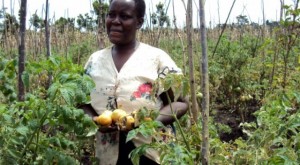Calls for Coop Bank revival
February 10 – The government has once again been asked to revive Uganda Cooperative Bank to help exploit the agriculture sector’s full potential in underpinning economic growth, job creation and reducing poverty.
“If we want to modernize agriculture and improve the welfare of farmers and their households then revitalizing the Cooperative Bank is the way to go,” Lawrence Kiiza, a Makerere professor has said.
He said, “We have urged government on several occasions, but our pleas have fallen on deaf ears yet for farmers to improve their production and productivity, they would need to adopt new productivity enhancing technologies like fertilizers, improved seeds and the adoption of irrigation methods. This can only be possible if they have access to cheap financing through cooperatives like it was in the past,” he said.
Researchers who took part in a workshop organized by the Economic Policy Research Centre (EPRC), farmers needed easier credit sources.
Uganda’s current interest rates for loans have been skyrocketing above the 20%. Many small holder farmers cannot afford loans to boost and improve the quality of their yields and experts believe this cannot bring about the desired change.
In his study on “Technology adoption and Irish Potato value chain in Uganda”, Francis Mwesigye a EPRC Research Fellow said,” The available financial options either require collateral or have a limit on the amount the farmers can borrow. As a result, farmers continue depending on their small savings and in an effort to boost their production, some farmers have instead resorted to adopting extensive farming methods which has environmental implications since it depletes forest cover and encroaches on swamps since land has been dwindling overtime,” he said.
Kiiza said, “Without revitalizing the Cooperative Bank (network) to avail farmers with the cheap necessary finances, we cannot talk about intensifying agriculture especially if we expect farmers to continue depending on their savings or the alternative financial choices.”


 African Heads of state head to South Korea next week for Summit talks
African Heads of state head to South Korea next week for Summit talks
 Trading leads as main source of income for Ugandans
Trading leads as main source of income for Ugandans
 New leadership for bankers’ umbrella as total assets top $12 billion
New leadership for bankers’ umbrella as total assets top $12 billion
 Brussels Airlines to announce Nairobi service
Brussels Airlines to announce Nairobi service
 SITA promises enhanced travel experience after Materna acquisition
SITA promises enhanced travel experience after Materna acquisition
 Saudia’s 105 aircraft order stretches A320neo lead over rival Max
Saudia’s 105 aircraft order stretches A320neo lead over rival Max
